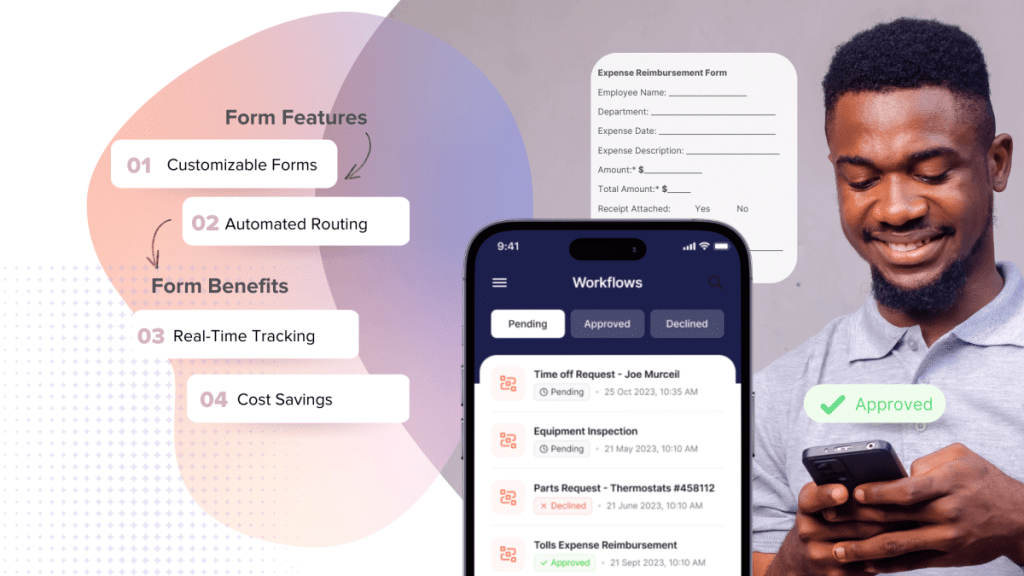In today’s fast-paced work environment, businesses are always seeking ways to engage and connect with their employees. Mobile technology has provided a solution: employee engagement apps. These apps offer an accessible platform for employees to interact, collaborate, and stay connected, revolutionizing how organizations manage the employee experience.
1. Enhancing Communication and Collaboration
Communication is vital for any organization. However, traditional methods like emails or intranets may not always reach employees on the go and provide real-time updates. Mobile apps for employee engagement bridge this gap by providing connectivity between employers and their workforce.
By offering access to news updates, announcements, and project information, these apps ensure that employees stay well-informed when they’re not in the office. Additionally, interactive features such as forums or chat functions promote collaboration among team members regardless of their location.
2. Empowering Employee Recognition
Recognizing employee contributions is essential for maintaining morale and productivity within an organization. Employee engagement mobile apps empower companies to foster recognition from both peers and managers.
Within these applications, employees can acknowledge and appreciate their colleagues’ accomplishments through badges or shoutouts. This instills a sense of achievement. Also fosters a positive work culture centered around recognition and support.
3. Promoting Continuous Learning and Development
Ongoing learning is crucial for the growth and advancement of employees’ careers. Mobile apps for employee engagement provide individuals with learning opportunities when they are on the move.
These apps often offer access to training modules or virtual courses that employees can complete at their convenience. Additionally, interactive features such as quizzes or platforms for sharing knowledge enable employees to exchange insights and expertise across levels or departments.
4. Emphasizing Well-being Initiatives
Employee well-being has become a priority for organizations striving to establish a productive and healthy work environment. Employee engagement mobile apps often include wellness components that incentivize employees to prioritize their well-being.
Examples of initiatives could be fitness challenges, meditation exercises, or suggestions for recipes. By encouraging employees to take care of themselves, organizations contribute to a more engaged workforce.
5. Seamlessly Incorporating HR Processes
Handling HR tasks like requesting leave, conducting performance evaluations, or submitting expense claims can be time-consuming for both employees and HR departments. Mobile applications designed for employee engagement simplify these processes, reducing the burden and improving efficiency.
Through these apps, employees can conveniently request leave or access HR information whenever they need it. This accessibility empowers individuals to effectively manage their responsibilities while enabling HR teams to streamline their workflows.
6. Enhancing Employee Engagement with Gamification
Mobile apps focused on employee engagement often utilize gamification techniques to enhance the experience and encourage participation. By incorporating elements such as challenges, leaderboards, badges, or rewards, these apps can make routine tasks more enjoyable and engaging.
Gamification not only adds fun to work but also fosters healthy competition, collaboration, and a sense of progress among employees. Individuals may strive to earn badges or climb the leaderboard by completing tasks that contribute to an environment that promotes a sense of accomplishment.
7. Simplifying Feedback and Performance Management
Providing feedback and effectively managing employee performance is crucial for growth. Employee engagement mobile apps provide a convenient platform for supervisors to offer real-time feedback.
These apps enable managers to capture and document performance discussions throughout the year easily. They also offer a way for employees to monitor their progress, establish objectives, access performance metrics, and receive feedback from supervisors. Through this technology-driven process, organizations can enhance their performance management practices while fostering improvement among their employees.
Conclusion
Mobile applications for employee engagement have greatly transformed how organizations connect with their workforce and enhance the employee experience. By improving communication, promoting collaboration, encouraging recognition, facilitating learning opportunities, supporting wellness initiatives, and streamlining HR processes. These apps have become a part of workplaces.
For businesses seeking to empower their employees and cultivate a workforce, on-the-go investing in efficient and user-friendly employee engagement apps that leverage mobile technology is a wise choice. As technology advances, companies embracing solutions will undoubtedly enjoy the benefits of increased productivity, creativity, and employee satisfaction.

